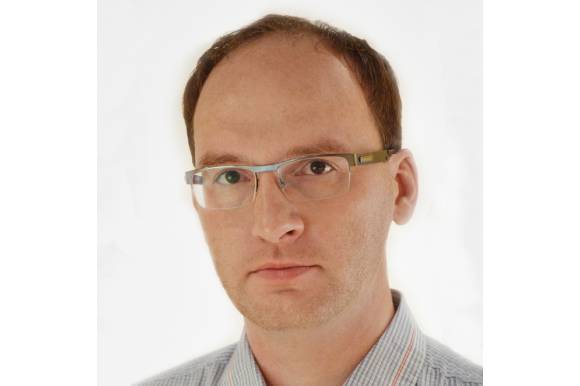Studio 727 was founded in 1997 and since then it has been helping clients to fulfill their ideas and dreams in the world of film and advertising. Studio 727 now offers full production and postproduction workflow as well as three fully equipped stages that are ready to carry out even the most complex requirements in film and VFX.
Central and Eastern Europe is one of the most important locations for global games developers and studios, and artists in the region are increasingly working for both film and games. FNE looks at how these two sectors of the entertainment industry are converging and why this trend is important for the future development of both.
FNE: When was Studio 727 founded and what have been your main missions and strategic projects so far?
Ladislav Dedik: Studio 727 was founded in 1997. From the beginning my goal was to create a complex environment for creating VFX for the film industry. Subsequently, the goals were expanded to include 3D digitalisation, namely a wide range of common objects, people, vehicles, animals, the environment, as well as cultural heritage items.
FNE: What is the current situation in the Slovak gaming industry and what distinguishes it from the industry of other countries?
Ladislav Dedik: Studio 727 is a major supplier of assets for the world's largest AAA game titles. There are several successful companies in the field of game design in Slovakia. There are also many interesting, enthusiastic and talented creators. There is a big disparity in the number of investments in successful international projects and those that are created in Slovakia.
FNE: Film and games converge is a hot topic now. What can you tell us about the relationship between the gaming industry and the film in your experience? Do you have any experience using VFX in terms of games?
Ladislav Dedik: Thanks to our experience with VFX in film, we are highly valued by game studios such as Infinity Ward, Treyarch and Sledgehammer. I am glad that renowned specialists in the film industry are gradually coming to these studios, which have the highest demands that the film requires. Also thanks to us, we manage to improve the visuals of the games closer to the visuals of the film.
We digitalise many locations around the world in a quality that will be used in the game as well as in the film. It is a big challenge for the game industry to get as close as possible to the film quality. And that in terms of the visual, but also the content.
FNE: Are there any Slovak films that are being turned into games or Slovak games that are being turned into films or TV series?
Ladislav Dedik: Slovak film is too local and rarely has international commercial potential, which is why game creators prefer to create original works.
We are currently working on the independent game title New Dark Age and its goal is to meet the visual and narrative requirements of a film. We believe that its gameplay will work like a film.
FNE: Which Slovak games would you single out that have had international success, on which did you work? Which films would you also single out from your portfolio?
Ladislav Dedik: Twenty years ago we had international success with the online game TIMEHUNT awarded at WSA. We also collaborated on dozens of Slovak films. I can mention films like The Report / Správa directed by Peter Bebjak, produced by DNA Production, and coproduced by Evolution Films, Ostlich Filmproduktion, RTVS and the Czech Television, and Kidnapping directed by Mariana Čengel Solčanská, produced by JMB Film & TV Production in coproduction with PROMEA RTVS, Magic Seven, Štúdio 727 and the Slovak Audiovisual Fund.
However, we currently believe that the film on which we collaborated with the director Juraj Jakubisko, Perinbaba and Two Worlds, will be released. The film is produced by the Czech company J&J Jakubisko Film Europe SE in coproduction with J&J Jakubisko Film Europe Production Slovakia and JOJ TV
FNE: How much is the turnover and how much the percent of expected growth in the Slovak Games industry? What can you tell us specifically about your company's numbers?
Ladislav Dedik: I don't think I can speak for the Slovak Games industry.
I can say for us that we are going through difficult times. The pandemic complicated the situation for us, and today it is also the conflict in Ukraine.
As a Slovak team, we had the opportunity to travel and work almost anywhere. However, that has changed quite a bit. Also, the consequences of the pandemic caught up with us significantly later than other branches of production, as we were finishing the films in progress during the pandemic. And these influences have a fundamental impact on the company's turnover, which is around 2 m EUR.
FNE: How do you see the development of the relationship between the film and gaming industries?
Ladislav Dedik: Today they are two worlds that have different publishers, producers, creators. However, some professions are starting to overlap. Technology is rocketing forward, which erases the visual difference between film and game. This brings many possibilities for the creation of genuinely multimedia projects. We are gradually revealing the meaning of the word metaverse, where films and games will play an important role.
However, it will be important for creators in this world to remember that the "content" can be empty if it doesn't have a great story and characters. That's why we love games and films. It's all about the story and the characters!





















